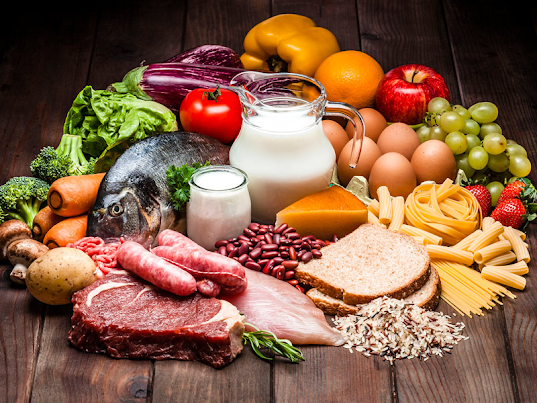Every January, fat is the target of health columnists, fitness magazines, and desperate Americans. This year, PopSci looks at the macronutrient beyond its most negative connotations . What is oil good for? How do we get it to go where we want? Where does it go when it's lost ? This, my friends, is the Fat Bear.
In the movie Mean Girls, Regina George, who is trying to lose weight on a high-carb diet due to some cunning, is famous for asking her clique if butter is a carb. Cady Heron, the crazed enemy responsible for the wrong diet, responds in the affirmative.

We all know Cady is a real jerk: there is no research to support high-carb diets for weight loss, and butter is indeed a fat. But the question raises an important point. Many diets over the years have avoided various macronutrients, and the trends all seem to contradict each other. When the low-fat diet loses its popularity, the high-fat, low-carb diet will take its place. These fads can very easily distort our perception of what is actually healthy. Let's take a closer look at what carbohydrates, fats, and proteins really are and how they keep you healthy.

Butter, bread, what difference does it make?
When we think about the nutritional profile of a food, it is often broken down into macro and micronutrients. Macronutrients essentially make up the bulk of human energy. Carbohydrates, fats and proteins are the primary players. Each is unique in their chemical composition and how our bodies break them down for fuel.
Carbs, which can take the form of everything from bread to pasta to sour-patty kids, are broken down into simple and complex forms. A simple carbohydrate is basically any sugar molecule. These are grouped into long chains to form complex carbohydrates, which your body breaks down into simple sugars when ingested.Carbohydrates (especially simple carbohydrates) are extremely fast sources of energy. Your body immediately breaks them down to give you a boost. If this energy is not needed, your system can store it in various forms.
Fats, on the other hand, are much more complex molecules composed of fatty acids and glycerol chains. We need some to protect our organs and help synthesize and regulate hormones in the body. But fats take much more effort for our bodies to break down and are therefore much slower forms of energy.
Don't forget the proteins. Just like oils, they burn slowly. They consist of different chains of amino acids. We need the 20 essential amino acids to survive, so eating protein is a must.
Are all calories created equal?
While all three macronutrients are crucial to survival, you may be understanding that carbohydrates are a little different. Because our bodies absorb and break them down so quickly, eating too many at once (especially simple ones) can cause unnecessary spikes in our insulin levels, which over time can lead to metabolic disorders like diabetes. These spikes are especially likely if we consume our sugars when we don't actually need quick energy. On the other hand, eating foods that are very high in fat can cause us to store
too much fat (adipose) tissue, leading to these disorders (as well as potentially increasing our chances of heart disease and cancer).And too much protein can actually put too much strain on our kidneys. Therefore, none of the macromolecules can be said to be extremely healthy. You must love each of them with their own values.

How much of each should I get?
Here's a big shocker: Eating a diet that includes all three macronutrients is probably best for our health. But there are some best practices you can follow to get the most out of your energy. Consider this series of research evaluating whether the order of various macronutrients eaten by people with type 2 diabetes alters their insulin and glucose levels in response to food.It turned out that the highest increase occurred when people consumed carbohydrates first, followed by the rest of the food groups. In contrast, these increases were much lower when carbohydrates followed protein and fiber. In fact, the decline was similar to when a person took a pharmaceutical drug aimed at lowering their glucose levels.
What about diet? What's the best way to go?
When people think about dieting, they often focus on what they should eliminate. While limiting particularly unhealthy foods can help, it's equally important to focus on what you use to replace them. A recent report from the American Heart Association states that saturated fats (considered less healthy)analyzed why clinical trials using polyunsaturated fats (considered to be healthier) instead saw a lower incidence of cardiovascular disease than when carbohydrates were used as a substitute. It turns out that the diet is often a substitute for simple carbohydrates, saturated fats, which can lead to cardiovascular disease. Their cardiovascular health improved when they replaced saturated fats with whole grains.
Nutrition research itself is extremely difficult because it has to take into account many factors (including genetics and environment) . But when it comes to what we eat, the question doesn't have to be whether to seek out fats or avoid carbs. If the food you eat is highly processed, it probably isn't particularly good for you.If not, it's probably not all that bad for you. Of course in moderation.











0 Comments